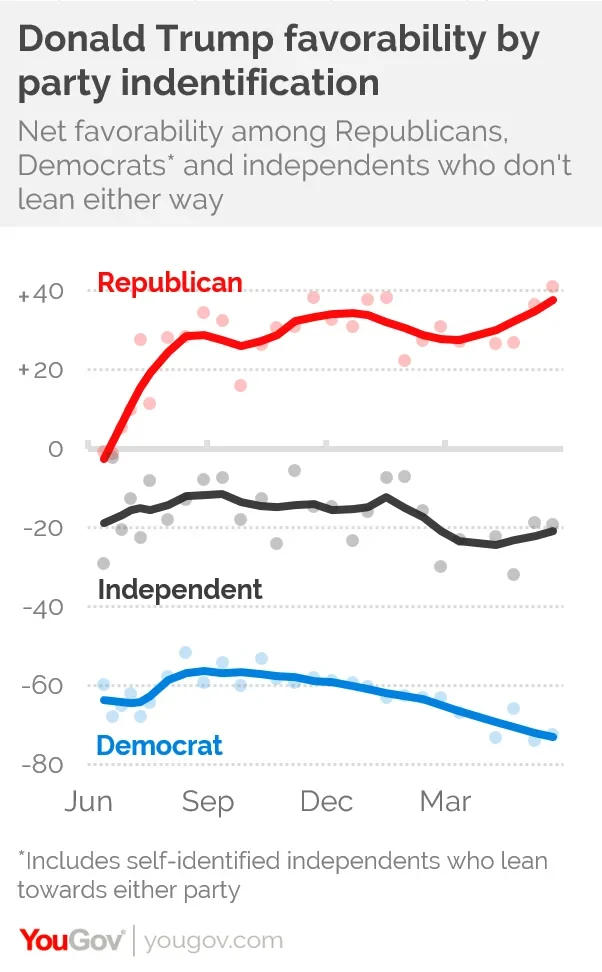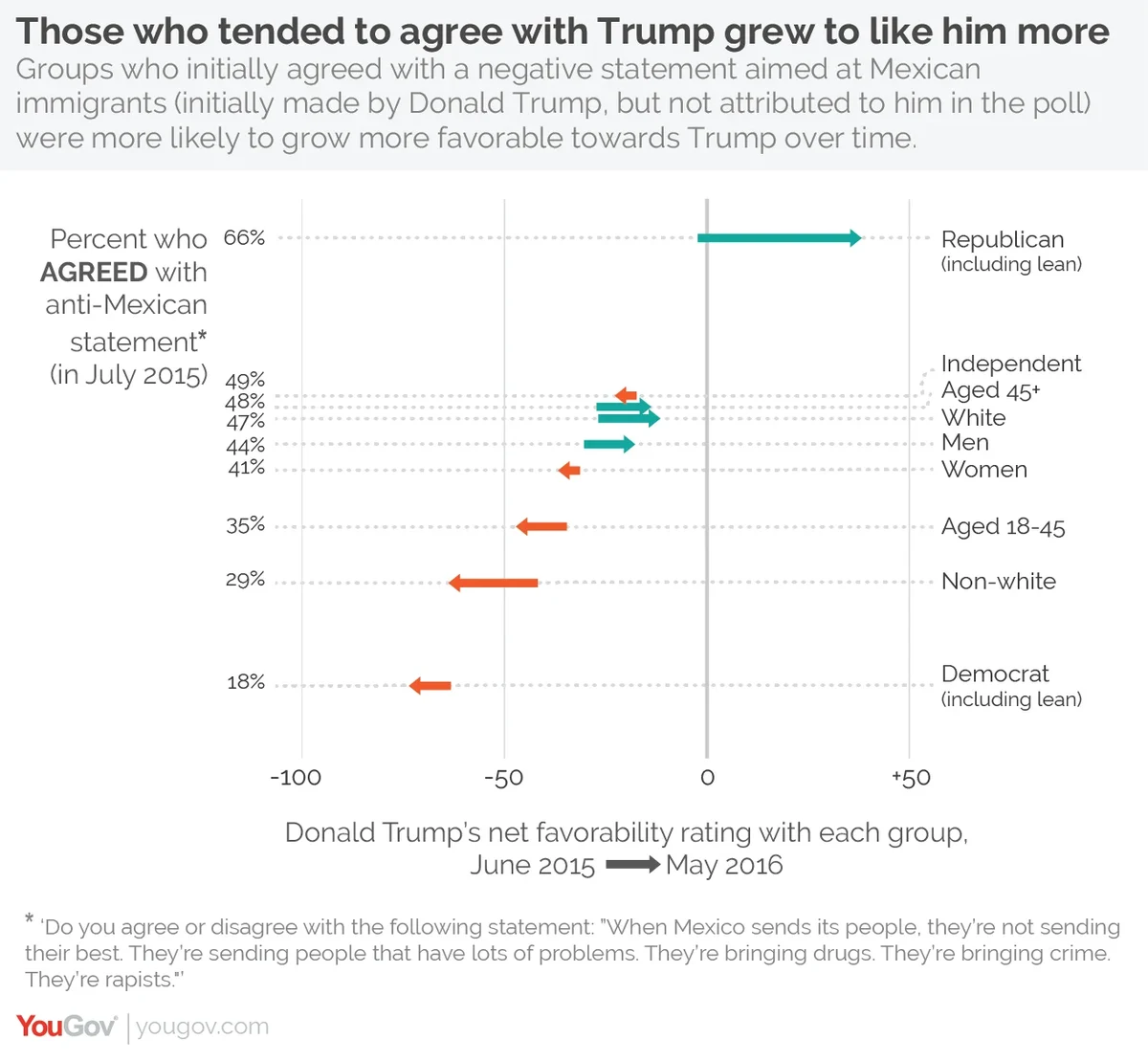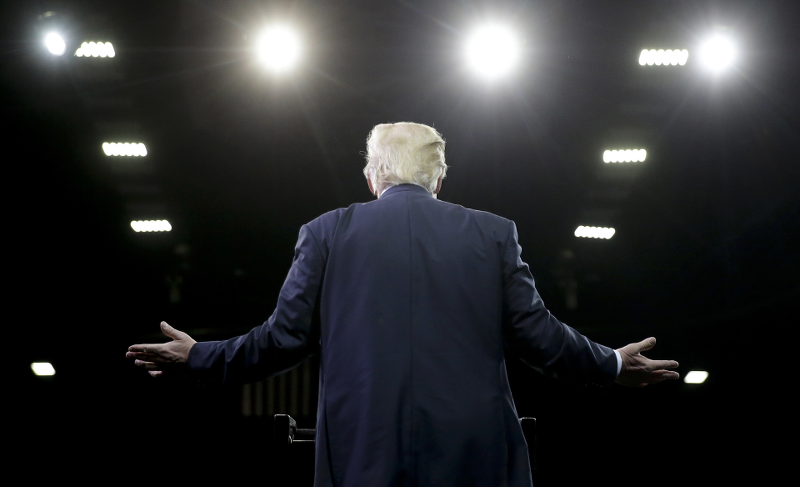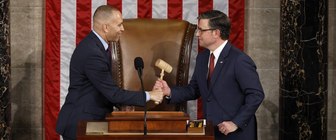Republicans have grown more fond of Donald Trump since he started dominating the airwaves. Others have not.
Donald Trump has received more coverage on television news than any candidate running this year, Democrat or Republican. It is hard to deny this played a large role in his primary victory over a host of lesser-known opponents. But there is less evidence he will have the same success with the likely Democratic nominee, Hillary Clinton, in the general election campaign.
For one, Clinton is already much more familiar to voters than Trump’s opponents, meaning she will not rely on media coverage to introduce herself to voters in the same way. When Trump began his own campaign in June, about a third of Republicans did not know if they felt favorably or unfavorably about Ted Cruz, and less than a third of the rest felt “very” favorable or unfavorable. As of May 2016, 97% of Americans have an opinion of Hillary Clinton, with nearly two-thirds feeling strongly about it. Trump himself is now in the same boat as Clinton: the proportion of Americans with any opinion of Trump has grown from 86% to 97%, and the proportion with a strongly held opinion (positive or negative) has grown from 45% to 70%.

More importantly, while the wall-to-wall Trump coverage of the primary has been good for his reputation with Republicans, it appears to have done damage with everyone else. Trump’s net favorability ratings (percent favorable minus percent unfavorable) among Republicans and Republican-leaning independents have grown from -1 when he announced his candidacy to +41. But his ratings with everyone else have fallen by an average of 10 points over the same period, to -58. This includes Democrats, Democrat-leaning independents and also independents who don't lean either way. Trump has hardly budged at all with the last group, also known as "true" independents, which means he is still doing poorly with them. He started out about 19 points underwater with them in June-July, rose a bit in the winter, and then settled back down to around -21.
It's possible his image will improve as he turns his attention to a wider audience, but there appears to a close link between his evolving popularity and the very positions and rhetoric that have won him headlines.
For example, in July, YouGov asked respondents whether they agreed with a negative statement about Mexican immigrants: "When Mexico sends its people, they're not sending their best... They're bringing crime. They're rapists." The statement was a quote from Trump's first campaign speech, but it was not attributed to him in the survey.
The groups who were most likely to agree with the statement – Republicans, older voters, whites and men – were those who grew more positive about Trump over the next ten months. Groups who were least likely to agree – non-Republicans, non-whites, and young people – were those who grew more negative about Trump over the same period.

In other words, Trump's success in the Republican primary probably wasn't only about his dominance on the air waves. Republicans liked what he was saying, and eventually came to like him more. Others did not, and they turned away.
See the Economist/YouGov results
Economist/YouGov poll archives can be found here.









